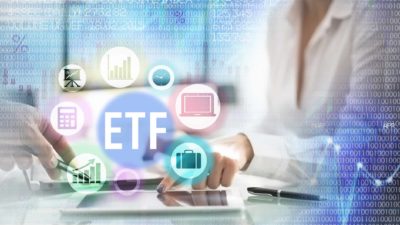On December 13, Marion Kohler, Head of Domestic Markets at the RBA, gave an insightful speech titled 'The Long View on Australian Equities'.
It's important you read this before the market wobbles makes you so nervous that you sell your shares in CSL Limited (ASX: CSL), Amcor Limited (ASX: AMC) or BHP Billiton Limited (ASX: BHP).
There were a number of interesting data points raised that Aussie investors should be aware of.
On long term returns
"If you had put $100 into the equity market in 1900 in a portfolio that tracked the stock market index, you would have over $100,000 today after adjusting for inflation; this is more than 100 times what you would have earned from a Government bond or a bank deposit."
That should make younger investors sit up and take notice. The future is not yet written of course, but it's nevertheless a good example of what's possible with long term share market investing.
Another interesting point was the similarities between the returns from Australia, US and UK equity markets – all averaging around 10% per annum since 1900.
Recent performance
Marion also noted: "Over shorter periods there is more divergence. In particular, over the past 25 years Australian stock prices have gone up a bit less than the rest of the world, particularly the United States. But Australian companies pay high dividends, due in part to the specific tax treatment they receive; I am referring to franking credits, which were initially introduced in 1987. Taking this into account, Australian stocks have generated above-average returns over the past 25 years."
Top-heavy
One issue that's always raised about the ASX is the concentration of the market in the top 10 companies. But the RBA notes that given the size of the ASX, this is not unusual compared with other countries.
Australia is much more concentrated than the US and Japan for example, but less concentrated than New Zealand, Spain, Austria and Finland.
And speaking of concentration, Marion said the following on the financial sector: "The ASX is bank-heavy and the financial sector more broadly makes up about a third of the exchange by market capitalisation: almost exactly the same share as it did 100 years ago. The sector has also diversified quite a lot since its early days, with diversified financials and insurance companies accounting for a much larger share than they used to."
Outlook
She briefly touched on valuations by looking at price-to-earnings multiples: "By this measure, Australian equities are not showing signs of heightened valuations."
Marion concluded by saying: "Equities will be more volatile than safer assets, but will very likely yield higher returns over the long term, and the composition of the market will continue to broadly reflect the structure of the real economy."
Foolish takeaway
This report was a great highlight into the wealth created by corporate Australia over time. And with the ASX now trading on an average dividend yield of 4.5% and a P/E ratio of 15, it looks like a good time to increase our ownership stake in Aussie shares. Then we can sit back and collect our dividends while the next 100 years unfolds.







